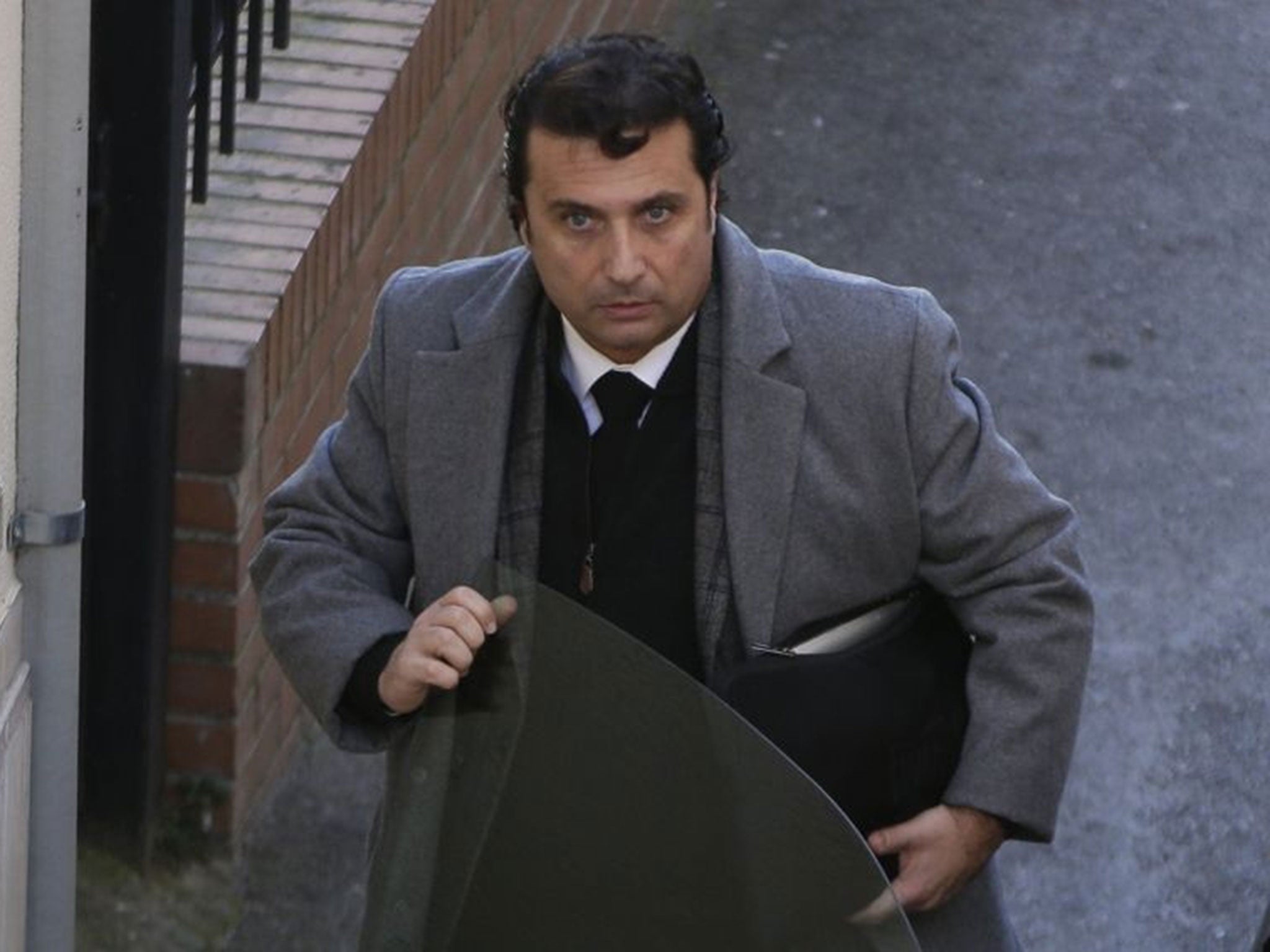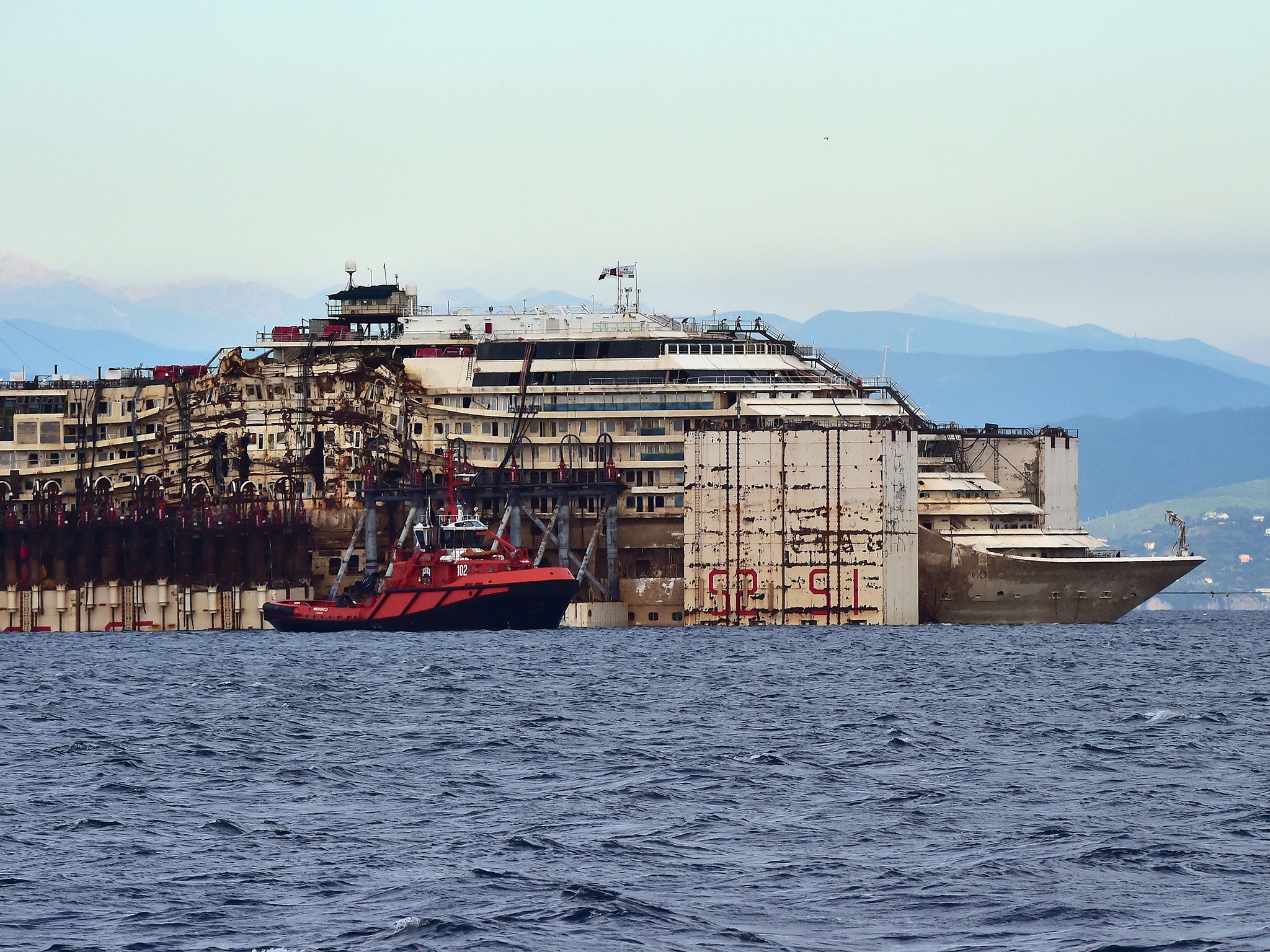Costa Concordia trial: Captain Francesco Schettino given 16-year sentence for manslaughter, but could remain a free man
Most lawyers in court considered the 16-year penalty severe, but under Italian law he has the right to challenge the verdict twice - which might take years

Your support helps us to tell the story
From reproductive rights to climate change to Big Tech, The Independent is on the ground when the story is developing. Whether it's investigating the financials of Elon Musk's pro-Trump PAC or producing our latest documentary, 'The A Word', which shines a light on the American women fighting for reproductive rights, we know how important it is to parse out the facts from the messaging.
At such a critical moment in US history, we need reporters on the ground. Your donation allows us to keep sending journalists to speak to both sides of the story.
The Independent is trusted by Americans across the entire political spectrum. And unlike many other quality news outlets, we choose not to lock Americans out of our reporting and analysis with paywalls. We believe quality journalism should be available to everyone, paid for by those who can afford it.
Your support makes all the difference.The captain of the Italian cruise ship Costa Concordia has been found guilty of manslaughter and sentenced to 16 years in prison, but he will remain a free man if he appeals against the verdict.
Francesco Schettino was at the helm of the vessel in 2012 when it hit rocks off the Tuscan coast and sank, killing 32 people. A three-judge panel sentenced him to 10 years for multiple manslaughter, five years for causing a shipwreck and one year for abandoning ship ahead of his passengers.
The ship, with more than 4,000 passengers and crew aboard, partially capsized on the night of 13 January 2012, close to the island of Giglio, after a risky manoeuvre which tore a huge hole in its side.

Prosecutors had demanded a 26-year sentence, after calling its captain a “reckless idiot” who steered the 290-metre vessel “like a canoe”.
But most lawyers in court considered the 16-year penalty severe – and many said it was heavier than they expected.
He is almost certain to appeal and under Italian law he has the right to challenge the verdict twice, which could mean he remains free for years. Judges did not rule him a flight risk or place him under house arrest.
On the charge of manslaughter, the case turned on Schettino’s decision to delay the order of evacuation for more than an hour. Senior coastguard officials have said this delay was to blame for most of the fatalities. A harrowing dossier prepared by prosecutors described how terrified passengers, finding themselves with no space on life rafts, fell into the sea. Others slipped and became trapped inside the flooded vessel as it tilted at an alarming angle.
Schettino sought to defend himself from the charge of abandoning ship early by claiming he’d “slipped in a lifeboat and couldn’t get out”.
A telephone conversation between the captain and the coastguard commander Gregorio De Falco, who ordered Schettino to “get back on board, for fuck’s sake”, became a national talking point.
Earlier in the day Schettino, who denied the charges, broke down after pleading for leniency. Schettino has had some support from the national consumer group Codacons, which is leading a class action against Concordia’s owner, Costa Cruises.
Giuliano Leuzzi, Codacons’ chief lawyer, said: “Schettino should be punished but he has been made a scapegoat. There should have been others on trial with him.”
Schettino and the company were jointly ordered to pay €30,000 (£22,000) compensation to each of the ship’s passengers. Italian government ministries, the region of Tuscany and the island of Giglio will also be paid millions of euros in compensation for environmental damage.

Four crew members, including the vessel’s second-in-command Ciro Ambrosio, have had plea bargains accepted, as has Roberto Ferrarini, the crisis co-ordinator of Costa Cruises. None is currently serving jail time.
Mr Leuzzi said it was “unacceptable and unbelievable” that the court was not taking into account “serious malfunctions of the ship”.
Reports prepared for the court highlighted faulty water-tight compartment doors, blocked lifts and the failure of emergency power supplies, as factors that may have added to the death toll.
Join our commenting forum
Join thought-provoking conversations, follow other Independent readers and see their replies
Comments